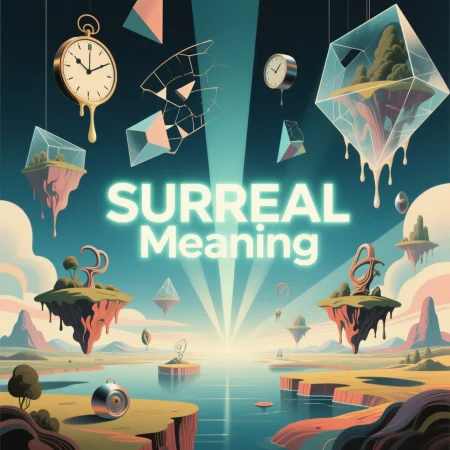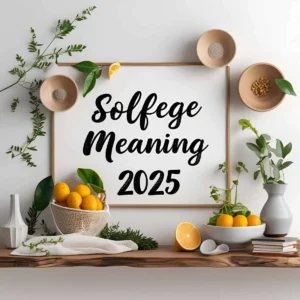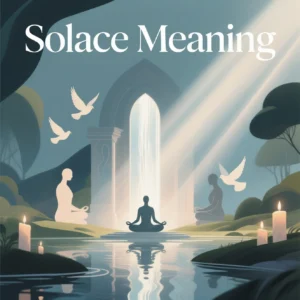Language often gives us words that capture emotions or experiences beyond ordinary description. One such word is surreal. People use it to describe moments that feel too strange, dreamlike, or unbelievable to be real. From art to everyday conversations, the surreal meaning has evolved into something both powerful and versatile.
This article explores the definition, origin, and interpretation of the word surreal, its role in different languages, its connection to art and culture, and how people use it to describe life-changing experiences.
Surreal Meaning in English
At its core, the word surreal comes from the movement of Surrealism, which began in France in the early 20th century. The French term surréalisme literally means “beyond realism.” Originally tied to art and literature, the word soon found a broader use in everyday speech.
According to the Oxford English Dictionary, the surreal definition is:
“Having the qualities of surrealism; bizarre, dreamlike, or seemingly unreal.”
In plain terms, if something feels too strange or uncanny to belong to reality, you might call it surreal.
Surreal vs Unreal
Although people sometimes confuse them, surreal vs unreal have subtle differences:
| Term | Core Meaning | Usage Example |
|---|---|---|
| Surreal | Dreamlike, bizarre, or uncannily real yet strange | “The landscape was surreal, like a painting come alive.” |
| Unreal | Simply not real, fake, or impossible | “The story he told sounded unreal.” |
Surreal implies a dreamlike quality, while unreal often implies something entirely detached from reality.
Common Phrases with Surreal and Their Meanings
Language adapts quickly, and over time, surreal became part of common phrases that describe emotions and experiences. Let’s explore the semantics and usage of each.
Feels Surreal Meaning
When someone says, “This feels surreal,” they express a state where reality feels too bizarre or unexpected to believe.
- Example: “Standing on stage receiving the award feels surreal.”
So Surreal Meaning
Adding “so” amplifies the feeling. “So surreal” emphasizes extreme disbelief.
- Example: “Meeting my childhood idol was so surreal.”
It Feels Surreal Meaning
This phrase captures an ongoing emotional reaction.
- Example: “It feels surreal to finally hold my baby after months of waiting.”
Life is Surreal Meaning
Used in reflective or philosophical contexts, it shows that life often feels strange, uncanny, or absurd.
- Example: “After traveling the world for a year, I realized life is surreal.”
Everything Feels Surreal Meaning
This expression conveys being overwhelmed, often after major changes or shocking news.
- Example: “After the earthquake, everything feels surreal.”
Felt Surreal Meaning
The past tense form reflects on an event that left a deep impression.
- Example: “Walking through the empty city streets during lockdown felt surreal.”
Surreal Meaning in Different Languages
The interpretation of surreal varies across languages, but the concept of something being dreamlike or uncanny remains consistent.
| Language | Translation | Contextual Meaning |
|---|---|---|
| Urdu | غیر حقیقی (ghair haqiqi), حیرت انگیز (hairat angez) | Unreal, astonishing |
| Hindi | अवास्तविक (avāstavik), सपने जैसा (sapne jaisa) | Unreal, dreamlike |
| Tamil | அவாஸ்தவமான (avāstavamāṉa) | Unreal, not real |
| Marathi | अवास्तव (avāstav) | Unreal, strange |
These translations show how cultures capture the semantics of surreal by linking it to fantasy, dreamlike states, or the absurd.
Surreal as Slang
In modern slang, surreal often describes intense or extraordinary experiences. Social media users might say, “That game was surreal!” after a thrilling match.
Unlike formal dictionary usage, slang drops the artistic or philosophical layers and sticks to raw emotion. It’s about moments that feel “too good” or “too strange” to process.
Examples of slang usage:
- “That concert was surreal.”
- “The proposal under the northern lights was surreal.”
- “When we finally won the championship, it was surreal.”
Surreal Meaning in Art and Literature
The word surreal has deep roots in art and literature, tied to the cultural movement of Surrealism.
Surrealism Meaning and Definition
Founded by André Breton in the 1920s, Surrealism aimed to unlock the imagination through the unconscious mind, dreams, and irrational thoughts. It was both a literary and artistic movement that rejected logic in favor of the bizarre and the dreamlike.
Famous Surreal Art Examples
- Salvador Dalí’s “The Persistence of Memory” – melting clocks symbolizing distorted time.
- René Magritte’s “The Son of Man” – a man with his face obscured by an apple, symbolizing hidden identity.
- Max Ernst’s collages – blending reality with absurd fantasy.
Surreal in Modern Context
Today, “surreal art meaning” extends to film, photography, and digital design. Surreal aesthetics dominate music videos, fashion campaigns, and even Instagram filters, showing the continued cultural relevance of the word.
Real-Life Examples of Surreal Feelings
Beyond art and slang, surreal emotions surface in real human experiences. These moments blend reality with a sense of the uncanny or dreamlike.
- Personal Milestones – Graduating, getting married, or becoming a parent often feels surreal because reality surpasses expectation.
- Historical Events – Watching the first moon landing or experiencing global crises such as the pandemic left people saying, “It was surreal.”
- Everyday Moments – Unexpected reunions, sudden success, or witnessing strange coincidences can all create a surreal situation definition.
Surreal Examples in Daily Life
- Walking into your childhood home after decades.
- Winning a lottery ticket when you least expect it.
- Meeting a celebrity in an ordinary setting, like a grocery store.
These experiences carry the semantics of the surreal: the blending of ordinary and extraordinary.
Surreal Word Origin
The surreal word origin goes back to French “surréalisme” in the 1920s. The prefix sur- means “beyond,” while réalisme means “realism.” Together, they form the concept of going beyond ordinary reality.
Initially restricted to the Surrealist movement, the word slowly entered English and then global use, where its meaning broadened to capture anything that feels dreamlike, absurd, or uncanny.
FAQs about Surreal Meaning
What does surreal mean in simple words?
It means something feels dreamlike, bizarre, or strange, almost too unreal to be true.
Is surreal positive or negative?
It can be either. A wedding might feel surreal in a positive sense, while a tragedy can feel surreal in a negative sense.
What are some surreal synonyms?
- Dreamlike
- Unreal
- Fantastic
- Absurd
- Bizarre
- Uncanny
What’s the difference between surreal and unreal?
Surreal suggests a dreamlike quality, while unreal simply means “not real.”
How do you use surreal in a sentence?
- “Winning the championship felt surreal.”
- “The surreal landscape reminded me of a fantasy novel.”
Is surreal always tied to art?
No, while its roots are artistic, modern usage covers everyday life experiences.
Conclusion
The word surreal carries more weight than just being a synonym for strange or unreal. Its meaning blends the dreamlike with the real, the uncanny with the ordinary. Whether you encounter it in art, slang, or everyday life, it’s a powerful word that captures the feeling of living through moments that defy easy explanation.



